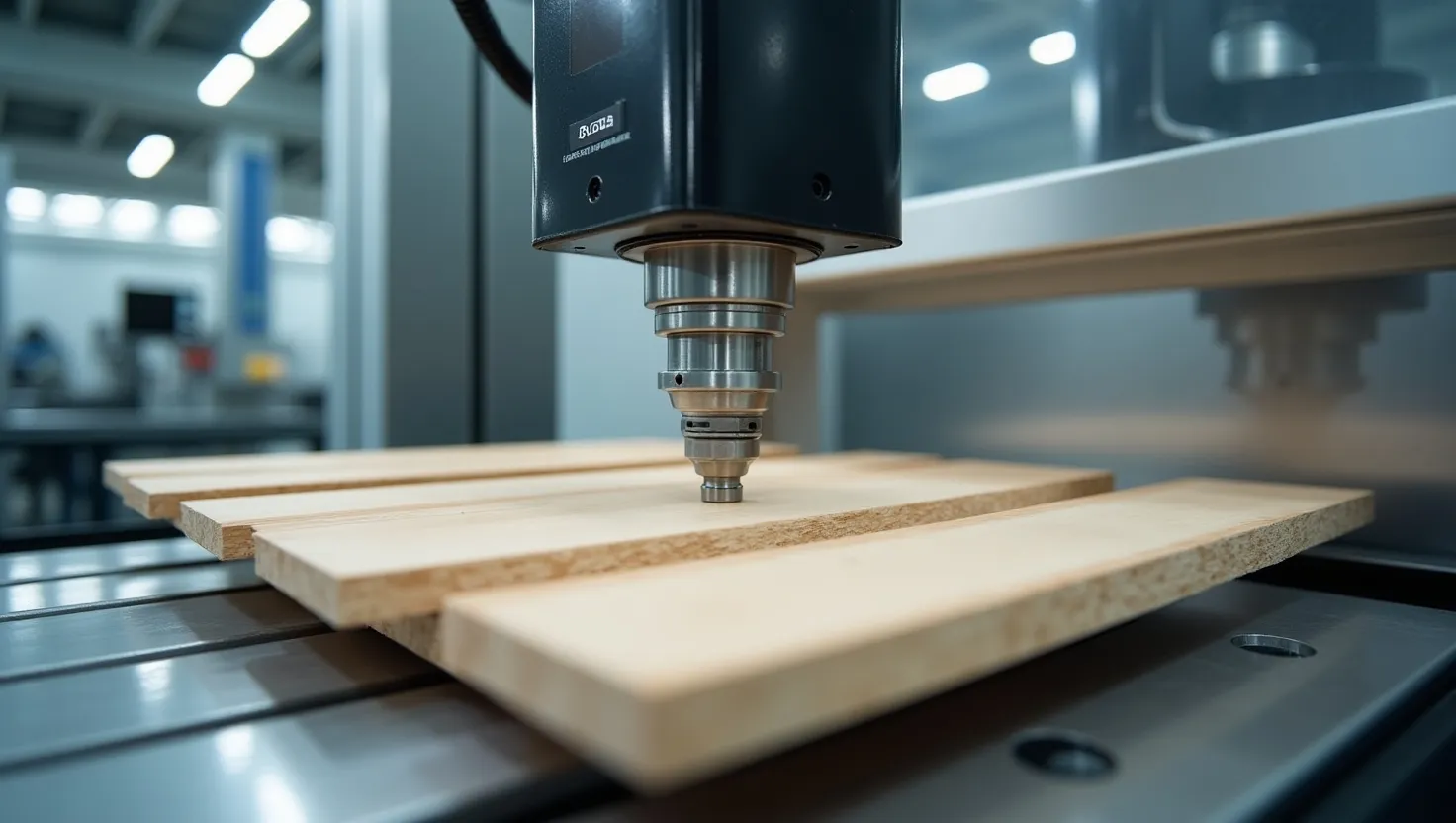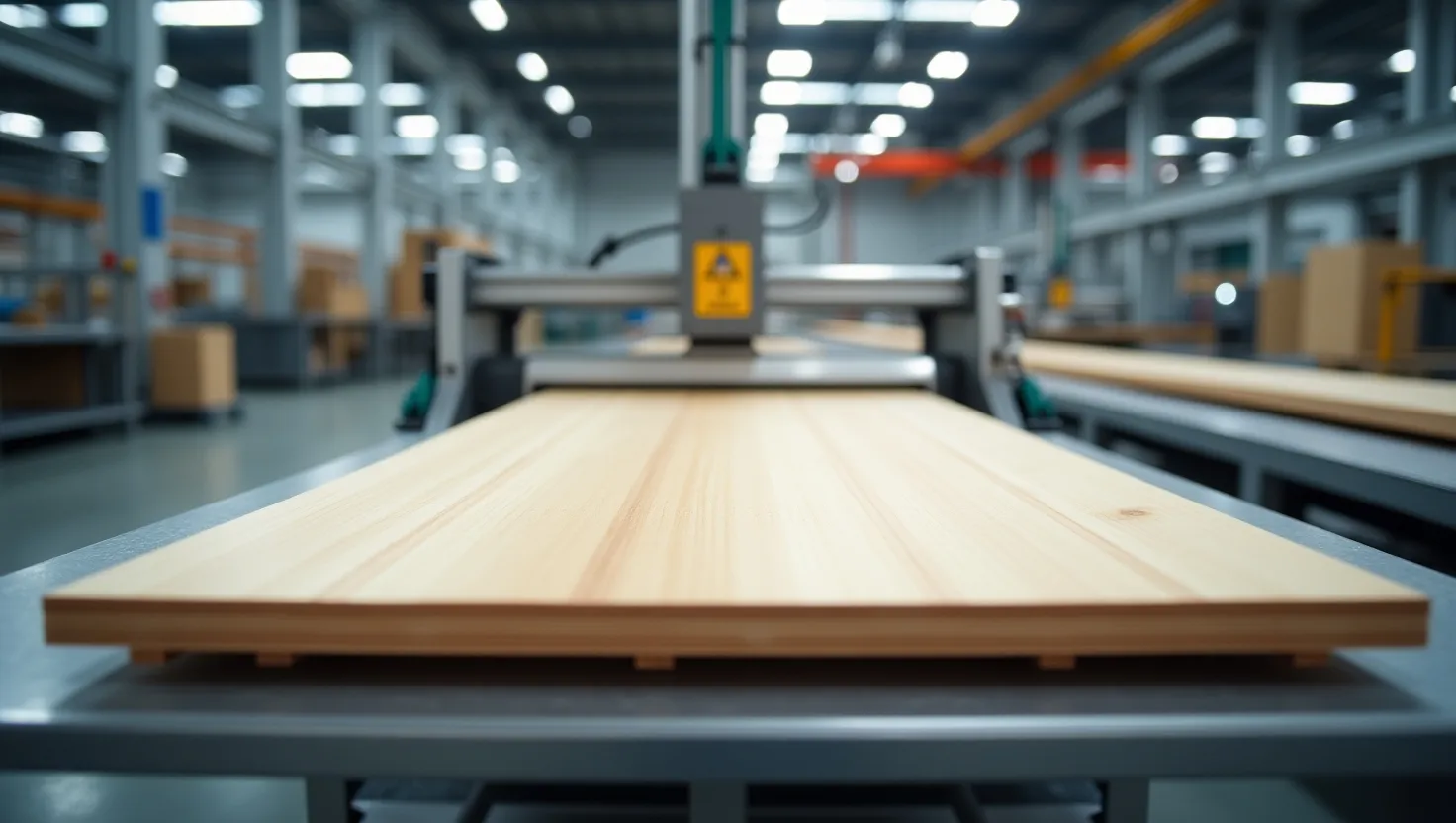Russian Forestry Industry Goes High-Tech
Russian machine vision technologies are reshaping the wood-processing sector and preparing to enter international markets.

Next-Generation Automation
At the St. Petersburg International Forum, Russian forest industry group Sveza showcased how machine vision is transforming manufacturing. Its newly established division, Sveza SmartLine, founded in 2024, presented ready-to-use solutions for automating quality control and tracking of wood-based panel products. These include defect scanners for sheet materials and a mobile app for automatic sheet counting. Both systems deliver detection accuracy above 95%, allowing manufacturers to quickly identify defects and maintain flawless accounting.
The technologies operate on veneer peeling lines, where scanners automatically detect and classify defects while processing massive data volumes in real time. The development was recognized among Russia’s top corporate innovations by the GIA-2022 Awards. In 2025, the company invested about 17 million rubles (approximately $204,000) to scale up these solutions, including deployments at production facilities in the Vologda Region. The systems are universal — applicable not only to wood but also to other materials, opening potential for cross-industry adoption.
The next venue for showcasing these technologies will be the WOODEX 2025 exhibition in Moscow, where Sveza SmartLine plans to introduce new pilot projects in machine vision and robotics.

Machine Vision Enters the Industrial Mainstream
The Sveza SmartLine developments are not experimental prototypes but ready-made industrial systems, demonstrating the maturity of computer vision for real-sector manufacturing. For the forestry industry, such systems mean a transition to automated quality control, reduced waste and defects, and improved production efficiency. It’s a clear case of traditional industries being reshaped by artificial intelligence.
Import substitution plays a major role: Sveza SmartLine’s solutions are developed in Russia to replace foreign analogues. Their potential, however, extends beyond the timber sector — they can be applied in furniture production, wood processing, and other related industries, both in Russia and abroad.

For citizens and the national economy, these innovations bring tangible benefits: higher product quality, reduced losses of valuable raw materials, lower production costs, and increased competitiveness. They also create high-tech jobs and strengthen expertise in AI and industrial automation. In the long term, Russia could export not only lumber and panel products but also the technological solutions themselves.
Global Trend, Local Solution
Sveza SmartLine’s strategy involves expanding automation across all Sveza facilities and commercializing its machine vision systems for external manufacturers, even outside the wood industry. The company plans to grow its ecosystem through partnerships with AI firms and by integrating with robotics, automated sorting, and logistics systems.
Globally, visual inspection using neural networks and online (streaming) learning is advancing rapidly. These technologies enable systems to adapt quickly to changing production conditions and minimize data-labeling costs. Across industries—from automotive and aerospace to metallurgy and electronics—AI-based quality control is no longer a novelty but an established standard. Such systems deliver high accuracy, continuous monitoring, and significant defect reduction. The technology base is ready—and Sveza has entered the trend at just the right time.

From Woodworking to Industry 4.0
The potential of Sveza SmartLine’s developments extends far beyond internal use. On the external market, the company is ready to offer modular, easily adaptable solutions for the CIS, Asia, Europe, and other regions with strong wood-processing sectors.
The modular architecture of the systems allows quick adaptation to various materials — not just wood, but also composites, plastics, and other industrial substrates. This greatly expands the target market and opens up new applications in furniture, construction, and packaging industries.
Integration with international Industry 4.0 standards and participation in global exhibitions will open new opportunities for clients and partnerships, including with tech firms and venture funds. This will accelerate feature development and help scale the business internationally. Thus, the Russian innovation is positioned to become a competitive export product in industrial automation.
In the coming years, machine vision systems are expected to become the industry standard for large woodworking enterprises. Russian technologies, tailored to local production conditions, could gain a competitive edge over foreign alternatives. Sveza’s initiative represents not just a technological breakthrough, but a step toward a more sustainable, efficient, and competitive industrial future.










































